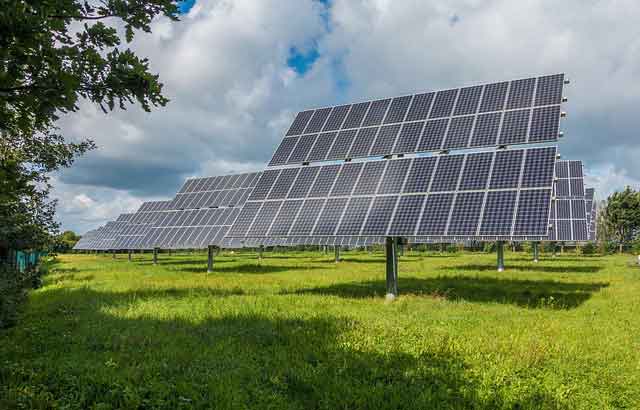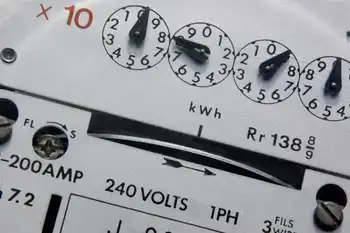Hydro-Québec and Ford work together to develop EVs
Ford, in collaboration with the Electric Power Research Institute (EPRI), is undertaking a three-year test program on the Ford Escape PHEV designed to develop and evaluate technical approaches for integrating PHEVs into the electric grid. EPRI has identified nine utilities across North America to test drive the vehicles and collect data on battery technology, vehicle systems, customer use and grid infrastructure.
In total, Ford has provided 21 vehicles for the real-world trials. Hydro-Québec is the only Canadian company participating in the North American Ford PHEV Program.
Highlights:
• First Ford Escape Plug-In Hybrid (PHEV) delivered in Canada to Hydro-Québec;
• Collaboration between Ford and utilities key to advance commercialization of electric vehicles;
• Ford Escape Plug-In Hybrid with lithium-ion battery achieves up to 120 mpg (2L/100 km- approximately).
Vehicle electrification is a sound environmental choice that will play an important role in the fight against climate change. Furthermore, it could be very advantageous for consumers to refuel at plug rather than at the pump.
Refueling costs for an average vehicle driven 18 000 km per year would be $244 as opposed to $1 383, which is 6 times less costly.
"We have to accelerate the replacement of oil by electricity for individual transportation and public transit. The transport sector accounts for 42% of Québec's greenhouse gas emissions. The reduction in greenhouse gas emissions that could be achieved through the electrification of transport in Québec, where 98% of the electricity is produced from renewable sources would be considerable. Hydro-Québec will act as a leader in this area," noted Thierry Vandal, Hydro-Québec's president and CEO.
The average consumption of one million all-electric vehicles, which represent 25% of Québec's cars, is 3 TWh, the equivalent of the annual generation of the Eastmain-1 hydroelectric facility.
The electrification of vehicles has sparked significant interest in the U.S.A. and Canada. PHEVs are one element of our blueprint for sustainability that includes actions ranging from refinements in gasoline fueled engines and transmissions, to the development of battery electric vehicles.
"The delivery of this Ford Escape Plug-In Hybrid vehicle represents another step in our development and understanding of the technology and its place in the overall energy picture," said Nancy Gioia, director, Sustainable Mobility Technologies and Hybrid Vehicle programs at Ford Motor Company. "We believe collaboration with utility companies to explore new business models, standards, infrastructure, and communication between vehicle and electric grids will be a key component to advancing the commercialization of electric vehicles in the coming years".
"This project will move us forward. Québec is a leader in the field of renewable energy and will also be helping to accelerate the development of electric vehicles," said Claude Béchard, Minister of Natural Resources and Wildlife. "In developing materials to enhance battery performance and motorization, we are in the avant-garde. Testing of the TM4 electric motor, made by one of Hydro-Québec's subsidiaries, on the Indica EV, will be taking place in Norway shortly. The day of electric vehicles has arrived and I firmly believe that they represent progress,"said Mr. Béchard.
The collaboration between Hydro-Quebec, Ford and EPRI represents a valuable contribution to the development of commercially viable plug-in hybrid electric vehicles," said Arshad Mansoor, Vice-President of Power Delivery and Utilization at EPRI. "The expansion of field testing into Canada will enable us to gather the data required for the seamless integration into the grid while providing a pleasant driving experience."
The Ford Escape Plug-In Hybrid, a research vehicle using high voltage, lithium-ion batteries, uses common household current (120 volts) for charging. Full charge of the battery takes six to eight hours.
When driven for the first 30 miles (48 km) following a full charge, the Ford Escape PHEV can achieve up to 120 mpg (2 L /100 km- approximately) when driven on surface streets. The vehicle is not range limited by the amount of charge available in the high-voltage lithium-ion battery, because once the charge in the battery has been depleted, the vehicle continues to operate as a fuel efficient, standard Ford Escape Hybrid. The transition is automatic and unnoticeable to the driver.
Related News

Is this the start of an aviation revolution?
LONDON - Aviation is one of the fastest rising sources of carbon emissions from transport, but can a small Canadian airline show the industry a way of flying that is better for the planet?
As air journeys go, it was just a short hop into the early morning sky before the de Havilland seaplane splashed back down on the Fraser River in Richmond, British Columbia. Four minutes earlier it had taken off from the same patch of water. But despite its brief duration, the flight may have marked the start of an aviation revolution.
Those keen of hearing at the riverside on…





